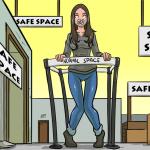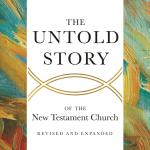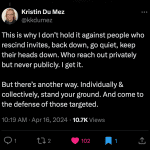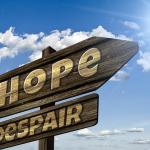We live as exiles. We’re called to be pilgrims.
I am journeying through Scripture chronologically, stopping at a few oases along the way, in order to contemplate our exile experience. I’ll also offer some helpful thoughts about how Christ can reshape that identity and reorient our journey so we live as pilgrims. To read earlier posts in the series, click here.
* * * * * * *
Tom Petty’s anthem addressing a lover who clutched her past baggage like a security blanket and lived as though she was in the starting blocks, ready to run, is on my iPod roadtrip playlist:
Somewhere, somehow somebody
Must have kicked you around some
Tell me why you wanna lay there
And revel in your abandon
Listen it don’t make no difference to me baby
Everybody’s had to fight to be free
You see you don’t have to live like a refugee
Now baby you don’t have to live like a refugee
Why would a free person live like a refugee?
The children of Israel might have been able to proffer answer or three. Exodus 15 details the rise and crash of a people who’d been (justifiably) complaining about their slave status for generations, received deliverance from God in a way that would leave no question he was the one who’d freed them, celebrated by launching praise fireworks in the Sinai, and within hours, reverted to their old familiar mother tongue. They complained.
“Then Moses led Israel from the Red Sea and they went into the Desert of Shur. For three days they traveled in the desert without finding water. When they came to Marah, they could not drink its water because it was bitter. (That is why the place is called Marah.) So the people grumbled against Moses, saying, “What are we to drink?” – Exodus 15:22-24
Of course they were thirsty. Three days is about as long as a body can go without H2O. And in that blazing white hot desert, the relief of release evaporated quickly. They didn’t yet know how to ask their Deliverer for water, or trust that he would provide it for them. Moses interceded for them, and the Lord gave Moses another miracle to pass on to the people. A piece of wood (wood in the treeless desert?) tossed into the water in response to God transformed it from bitter to potable.
The people failed the first pop quiz of their new lives. It was, as we say, a teachable moment. God asked the children of Israel to stop thinking like slaves: “If you listen carefully to the Lord your God and do what is right in his eyes, if you pay attention to his commands and keep all his decrees, I will not bring on you any of the diseases I brought on the Egyptians, for I am the Lord, who heals you.” (Ex. 15:20) Their obedience would allow them to flourish heart, soul, mind and strength. After more than four centuries parked in Egypt as third-class non-citizens, they entered the Sinai as though they were refugees. By definition, refugees are people who’ve been forced to leave their homeland.
The children of Israel weren’t being pushed out of Egypt; in fact, about 17 seconds after they were granted the freedom to go to the desert to worship God, Pharaoh sent his army after them in order to round `em up and bring `em back. But they didn’t understand what it meant to be pilgrims headed home. It would take the God’s schoolroom – the desert – to teach them how to stop thinking and acting as refugees.
Have you ever been given freedom and realized you had no idea what to do with it? If this has been your experience in some area of your life, did you find yourself tempted to revert to old ways of thinking and acting?















